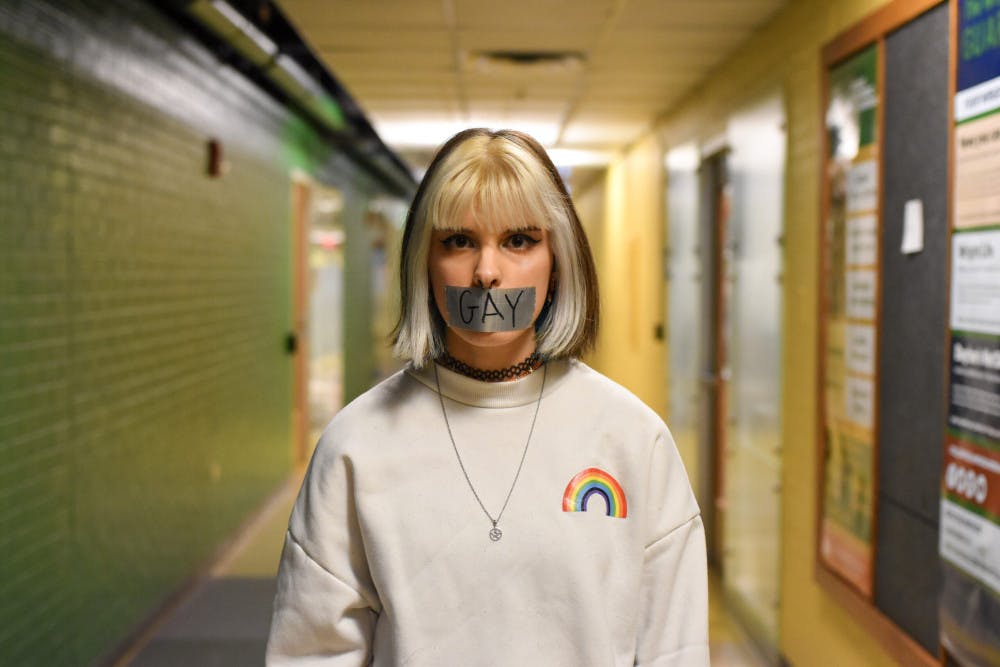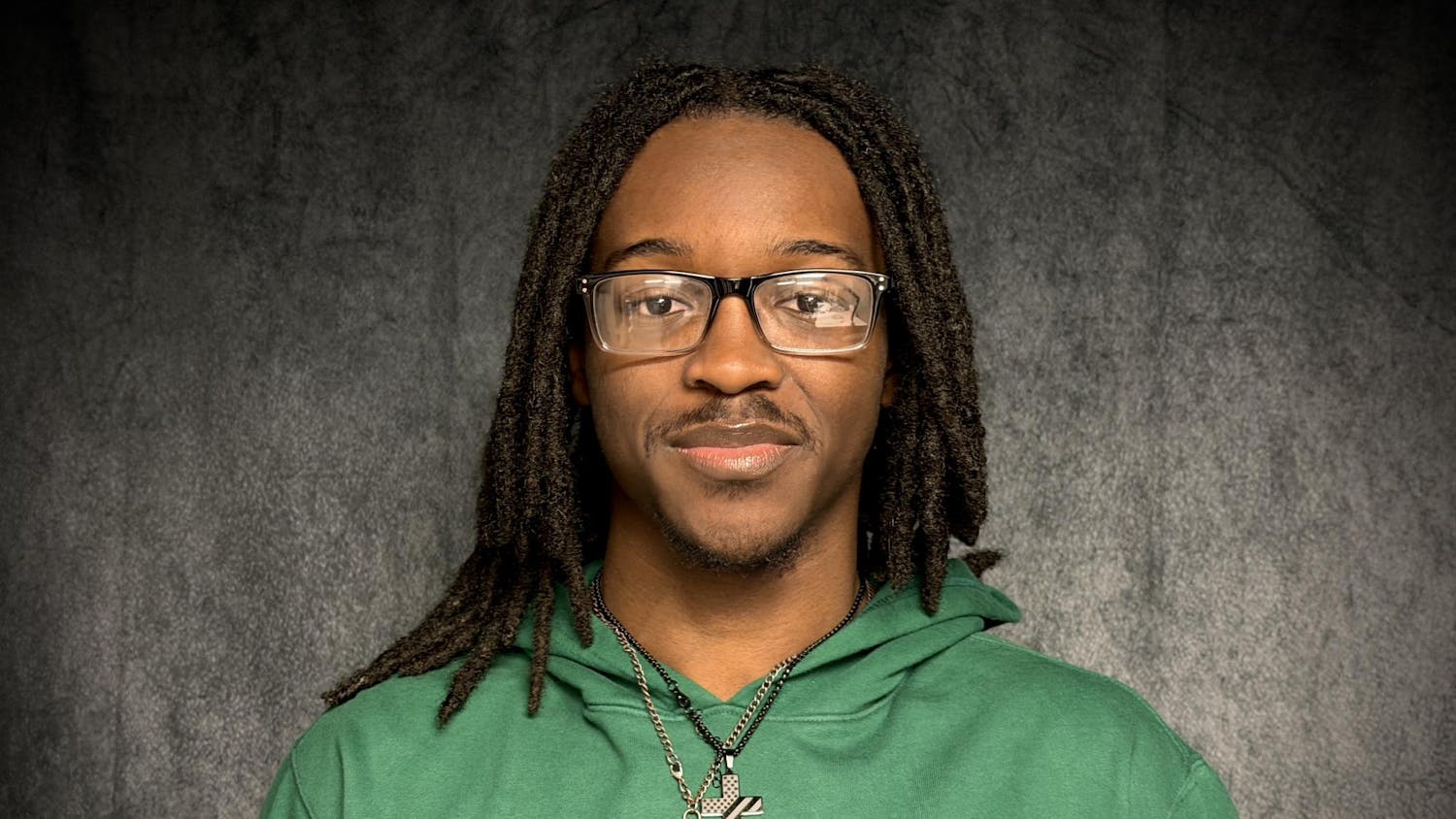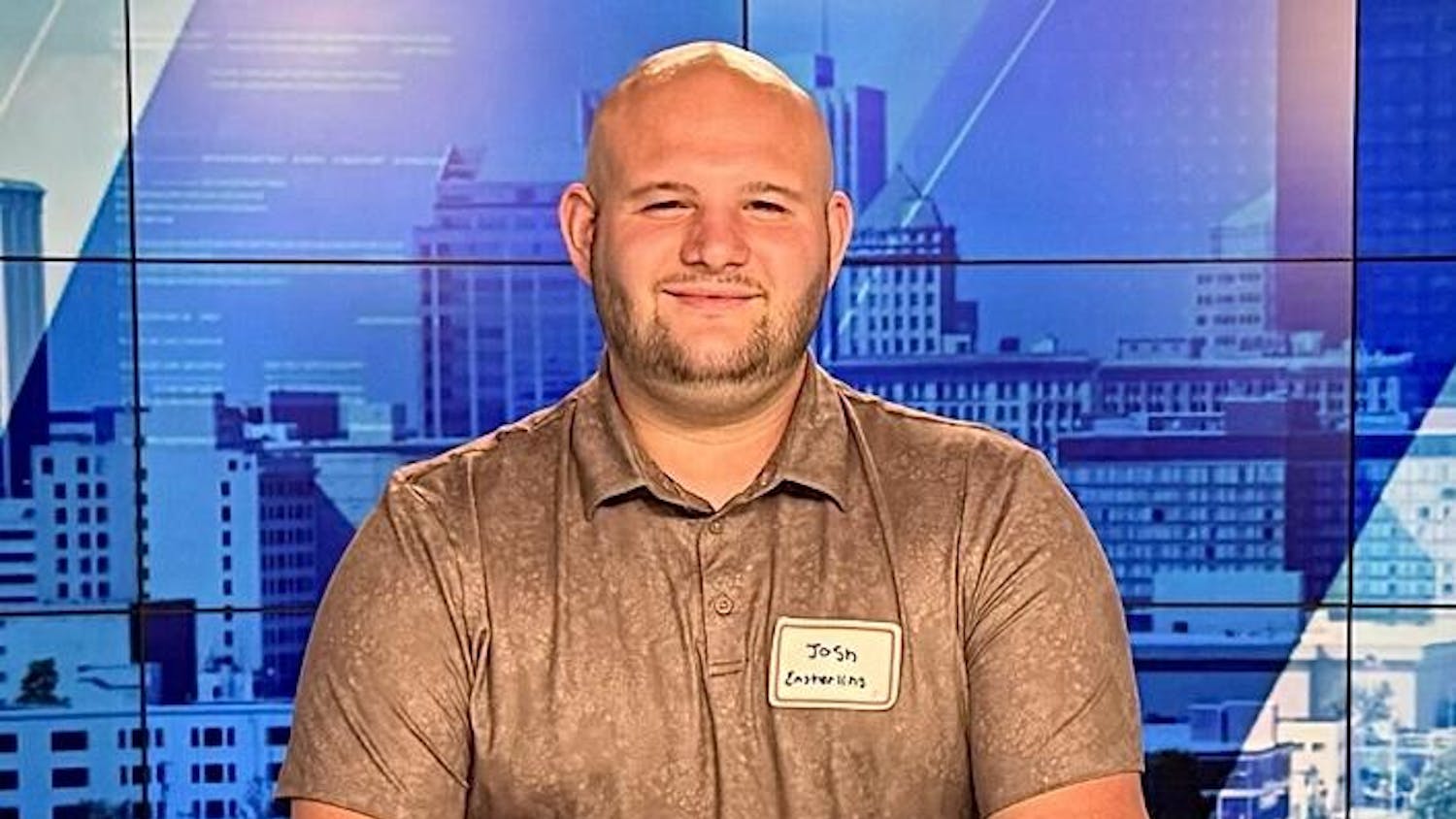Kristen Spires | Photo by Kelsie Tomlinson | The Wright State Guardian
Shortly after Florida passed the Parental Rights in Education bill, known as the “don’t say gay” bill to opponents, Ohio proposed its own version. Dayton area educators spoke out against both.
Background
On March 28, 2022, Florida Gov. Ron DeSantis signed Florida House Bill 1557, the Parental Rights in Education bill, otherwise known to opponents as the “don’t say gay bill,” into Florida law.
The law prohibits discussion about sexual orientation and gender identity in schools from kindergarten through third grade.
Following the Florida law, the Ohio House of Representatives introduced Ohio House Bill 616 on April 4. This bill combines the language of Florida House Bill 1557 regarding discussions about sexual orientation and gender identity, yet extends it through 12th grade, with Ohio House Bill 327 which prohibits the teaching of racially diverse topics.
Dayton area educators shared their opinions.
Kids are smart and curious
The Florida law seeks to protect parental rights regarding how they raise their children and decide to introduce them to LGBT+ topics.
Substitute teacher Drew Gillum, however, says students already know more than people think.
“A week or two ago I heard fourth-graders talking about LGBT rights, so kids are having those conversations anyway,” Gillum said.
In Gillum’s opinion, students in the younger grades are just curious about the world around them and the substitute teacher feels that there is nothing wrong with answering questions.
“It’s really not a big deal a lot of the time to just mention it. Especially in younger grades to just read a book about different kinds of families, which isn’t just about LGBT parents but also kids who have been adopted or are in the foster care system or live with their grandparents. It’s about all kinds of kids and that’s one part of the topic that all goes together,” Gillum said.
A majority of schools do not currently have a curriculum mandating teaching LGBT+ topics. Because of this, laws like these mainly discourage organic discussions from curious students, according to Intercultural Specialist for the LGBTQA Center Emily Yantis-Houser.
“I think people just overthink it. We don’t even have anything that mandates teaching those topics anyways. So what it’s doing is probably stopping those conversations that are organic or come from people’s experiences like my kid going to kindergarten and talking about her family,” she said.
Well-rounded curriculum
Long-term substitute Mariah Paynter fears that the Florida law and Ohio bill will prevent them and other educators from teaching well-rounded and diverse curriculums
“I understand their idea was to take into consideration parents and what they want, but the educators have more experience than the governing body does in terms of what is best for students. If we’re going to do a comprehensive curriculum we would want students to come out well-rounded. It’s not like we’re trying to impose anything on anybody. I just believe in a well-rounded and equal curriculum,” Paynter said.
A music educator, Paynter feels that the Ohio bill, if signed into law, would prevent them from teaching their students various composers and musical pieces.
“One of my big goals is to include diverse composers into the music we play and I couldn’t include anybody that is a part of the LGBTQ community because then we’d have to talk about it,” the substitute said.
Voicing similar views as Paynter, Yantis-Houser wants schools to be realistic about the world around them.
“I think teachers should be holistic and teach everything because that is the truth. You’re probably going to teach a lot about white people and hetero people because that is our society so I expect that. But I would love it if you’re teaching it all,” she said.
Students and teachers at risk
According to Yantis-Houser, the new Florida law could potentially allow schools to out students to their guardians. For Yantis-Houser, this is a cause for concern.
“It is so detrimental to not give someone the decision of when to tell someone or when to tell their guardians,” she said.
Recalling her own coming out experience, Yantis-Houser acknowledges how important it is for young LGBT+ students to feel supported and she fears the Florida law and Ohio bill will create distrust between students and educators.
“I can’t imagine what that feels like for a really young person who is trying to figure things out and trying to trust other people. It sort of feels like a betrayal,” she said.
While her coming out experience was positive, she knows that some students are not as lucky and schools outing them could potentially be very dangerous.
“To put that child at risk like that? For what reason? For who they are? For who they love? For who they believe to be?” she said.
Along with students, teachers can also face discrimination and be silenced by laws like these. Paynter feels that if the Ohio bill becomes law, it would make them scared to say the wrong thing in the classroom and face backlash from the district or parents.
“It makes it hard to know what is okay to say in class and I’d just be afraid to mention anything relating to gender identity and sexuality,” they said.
Additionally, Gillum mentions that this would not only quiet and oppress students in the LGBT+ community, but teachers as well.
“A lot of queer people are already in the curriculum and a lot of teachers are already not talking about the fact that they are queer,” they said.
Ohio educators already feel the repercussions of Florida House Bill 1557 as they await the results of Ohio House Bill 616.









